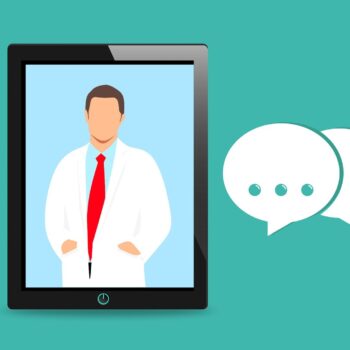
SOTI study reveals safety concerns when using mobile devices in healthcare. 24 percent are concerned about the security of sensitive patient data on end devices. 81 percent have problems with patient care systems.
One in four healthcare workers (24 percent worldwide; 39 percent in Germany) is of the opinion that patient data is not secure if they access it with their mobile device. This was the result of the global SOTI study "Critical Technology for Critical Care: The State of Mobility in Healthcare 2020/21". In addition, 81 percent (77 percent in Germany) of respondents from the healthcare sector complain about problems with systems that are used for patient care. Another 63 percent (56 percent in Germany) say that they struggle with system failures when using mobile devices on a weekly basis.
In addition, more than half of the time employees (56 percent both worldwide and in Germany) who are primarily responsible for patient care spend accessing and updating patient data. More than a third of the employees (34 percent worldwide; 28 percent in Germany) lack complete access to all the information required for patient care.
Study reveals many system failures
“According to our study, health care workers have to struggle with system failures, data security and general access to patient data when using mobile devices such as tablets or smartphones. Valuable time that could otherwise be used for patient care is lost here. In addition, in the event of data loss, there may be consequential damage, both financially and in terms of reputation, ”says Stefan Mennecke, Vice President of Sales, Central and Eastern Europe at SOTI. “If you extrapolate our survey data to the number of employees in the health care system worldwide, the patients miss several hundred thousand hours of treatment because the nursing staff is otherwise employed. In addition, there is the potentially unsafe system in many cases. Each employee processes several hundred patient files annually, which considerably increases the risk of unauthorized access to them. "
A lack of knowledge of the workforce harbors risks
When asked whether the respective employer has adequately trained its employees in the professional handling of data security, only 56 percent of respondents worldwide (57 percent in Germany) answered positively. A circumstance that exposes both healthcare providers and patients to significant safety risks. Furthermore, 54 percent (55 percent in Germany) stated that the processes implemented by their company in connection with inadequate technology lead from their point of view to waste of time that could otherwise be used for more intensive contact with patients. Only half of the respondents worldwide have direct access to personal or application-based support in order to be able to solve technical problems proactively.
Fulfillment of compliance guidelines is essential
Four out of five study participants (81 percent worldwide; 77 percent in Germany) expressed concern about the security of sensitive data in IT-supported file systems. More than a third fear that patient files could be stolen or compromised in a cyber attack. In addition, almost a quarter (24 percent) said they had little confidence that the devices they currently use are adequately protected against malware or unauthorized intrusion.
Health security and IoT
The market for mobile healthcare technology innovations (currently $ 72,5 billion), including Internet of Things (IoT) devices, is projected to grow to $ 2025 billion by 188,2 [1 ]. This corresponds to an average growth rate of 21 percent per year. In practice, this means that mobile devices such as smartphones, tablets or wearables will be used more and more frequently in hospitals, outpatient care and other clinical facilities. For example, 22 percent of those surveyed (27 percent in Germany) stated that they were already using such devices and a further 22 percent (15 percent in Germany) that their employer was expecting them to be introduced soon.
"Since mobile technologies have the potential to improve patient care and the quality of care, healthcare providers must be able to continuously record, secure and process the often huge amounts of data," continues Mennecke. “The use of IoT technologies increases both the probability of failure and data loss significantly. It is therefore essential to back up sensitive data. However, this can only be ensured if high quality equipment is properly integrated into all relevant systems and available to all employees who need them. When this is ensured, healthcare providers can safely take advantage of the great potential benefits of the IoT revolution and devote more time to patients. "
To the study at SOTI.net
About SOTI
SOTI is a leading provider of mobility and IoT device management solutions with more than 17.000 enterprise customers and millions of managed devices around the world. SOTI's innovative portfolio of solutions and services offers the tools companies need to make their processes truly mobile and get the most out of their mobility investments. SOTI provides a complete and flexible solution for the comprehensive management and security of all mobile devices and connected peripheral devices deployed in an organization, regardless of the operating system and form factor.
